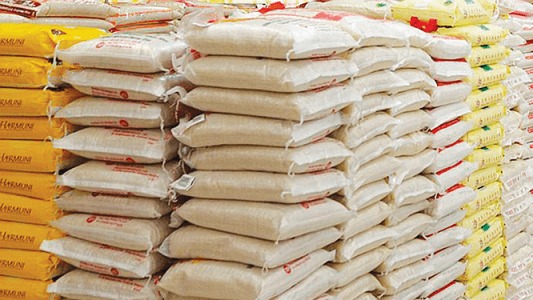This is not the best of times for Nigerian families, who have had to adopt bizarre cost-cutting measures to cope with the recent hardship occasioned by the dramatic hike in the prices of goods and services.
Several of them lamented that their income could no longer take care of their daily needs, adding that the prices of staples had almost tripled in the market. Rice, which is arguably one of the commonest consumed staples in the country, has risen to N77,000 per bag.
In December, the National Bureau of Statistics stated that the country’s inflation rate hit a 27-year high as headline inflation rose to 28.9 per cent.
The December headline inflation rate showed an increase of 0.72 percent when compared to the previous month’s rate.
In recent years, food prices have been on the rise across Nigeria. The situation deteriorated due to the impact of government policies such as the removal of subsidy on petrol and the free fall of the naira in the foreign exchange market.
Foodstuffs sellers in major cities, who spoke to Sunday PUNCH, lamented that the cost of a bag of rice had risen almost 200 per cent.
Sunday PUNCH gathered that long grain rice, which used to sell for between N45,000 and N50,000 in November, now costs over N70,000, putting a huge pressure on the consumers.
The unprecedented increase in the prices of commodities has caused nationwide hardship, with residents of some major cities taking to the streets to register their displeasure.
From Kano to Niger, Rivers to and Osun, residents protested the hardship on the streets.
In Niger State, for instance, residents of Suleja took to the street last Wednesday to register their displeasure over the high cost of living in the country.
Wednesday’s protest came two days after a similar protest in Minna, the state capital.
The Organised Labour on Friday insisted on embarking on an industrial action to register its displeasure over the current economic hardship in the country.
Although the Federal Government has ordered the distribution of grains and other items to cushion the effects of the economic crisis across the country, citizens are still grappling with the hike in the prices of commodities.
PUNCH



![Ibadan Residents Stage Protest Over High Cost Of Living [PHOTOS]](https://abntv.com.ng/wp-content/uploads/2024/02/Protest-in-Ibadan-238x178.jpeg)






